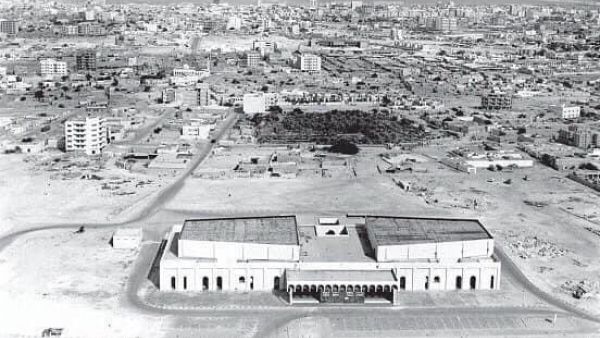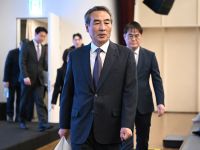Georgetown Scholar at QF Publishes Research on the Early History of Cinema in the Gulf

The early history of cinema in the Gulf region is the focus of newly published research by Assistant Professor Firat Oruc at QF partner Georgetown University in Qatar, titled "Petrocolonial Circulations and Cinema's Arrival in the Gulf." The article explores how British colonial rulers in Bahrain, site of the first cinema in the region, controlled access to the wonders of new moving picture technologies by importing political strategies first developed in their colonial holdings in India, and later expanding them to neighboring countries.
The discovery of oil in the Middle East in the 1930s ushered in a dramatic rush to modernity, with cinema at the forefront of those changes. The earliest films drew concerns over their impact on society in many Western nations, but in the Gulf, writes Dr. Oruc, “the cinema question was not merely a sociological issue; rather, it was a politically charged question” that caused concern for British colonial rulers.
Using the archives of the India Office Records, official circulars and personal writings of British political agents and American oil companies, Dr. Oruc reveals how early efforts to assert colonial influence over both the local population and international migrant workers sought to reaffirm hierarchies of power and to control the social changes caused by a new petroleum based economy.
“The core political issue of the emergence of a cinema culture in the Gulf was the restriction of cinematic medium and space to certain populations. As such, policing cinema was linked to the question of managing the social forces of hydrocarbon modernity that the discovery of oil unleashed,” he writes, noting that this control included managing every aspect of cinema, from who could operate a theater, to who could attend, and in which seats they could sit. Regulations impacted private, corporate-sponsored, and commercial public cinemas.
Over time, new cinemas established by local and South Asian entrepreneurs drew eager audiences for popular Egyptian, Indian, and Hollywood films. By the 1960s and early 1970s, “cinema as an affordable popular medium of entertainment spread to other Gulf cities, including Dubai (Al-Nasr, Plaza, and Deria), Muscat (Al-Hamra and Rivoli), and Doha (Gulf and Doha).”
Ultimately, he notes, colonial power efforts to regulate the industry “could not prevent the steady increase in the number of public cinemas across the Gulf. Cinema eventually became a permanent component of ‘the repository of new patterns of leisure’ in the hydrocarbon urban life.”
Dr. Firat Oruc’s research and teaching specialties center on the multidisciplinary intersections of modern world literature, postcolonial global literatures, cultural and literary studies of the Middle East, translation studies, and world cinema. His article was published in Film History: An International Journal which focuses on the historical development of the motion picture and the social, technological, and economic context in which this has occurred.
Background Information
Georgetown University in Qatar
Established in 1789 in Washington, DC, Georgetown University is one of the world’s leading academic and research institutions. Georgetown University in Qatar (GU-Q), founded in 2005 in partnership with Qatar Foundation, seeks to build upon the world-class reputation of the university through education, research, and service. Inspired by the university’s mission of promoting intellectual, ethical, and spiritual understanding, GU-Q aims to advance knowledge and provide students and the community with a holistic educational experience that produces global citizens committed to the service of humankind.
Located in Doha’s Education City, GU-Q offers the same internationally recognized Bachelor of Science in Foreign Service degree as Georgetown’s Capitol Campus in Washington, DC. This unique, interdisciplinary program prepares students to tackle the most important and pressing global issues by helping them develop critical thinking, analytic, and communication skills within an international context. GU-Q alumni work in leading local and international organizations across industries ranging from finance to energy, education, and media. The Qatar campus also serves as a residency and delivery location for the Executive Master’s in Emergency and Disaster Management along with the Executive Master’s in Leadership.







